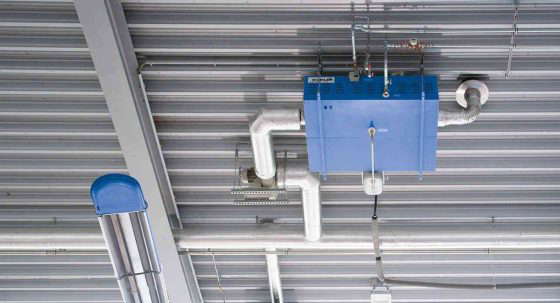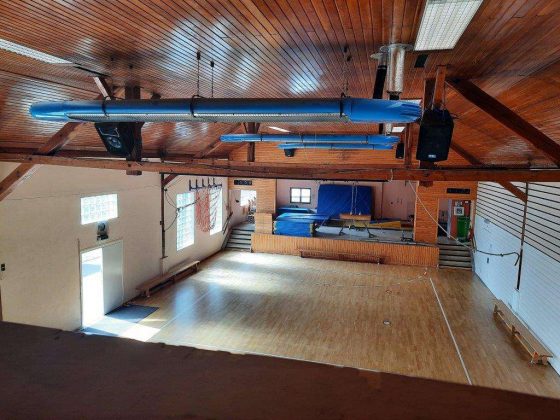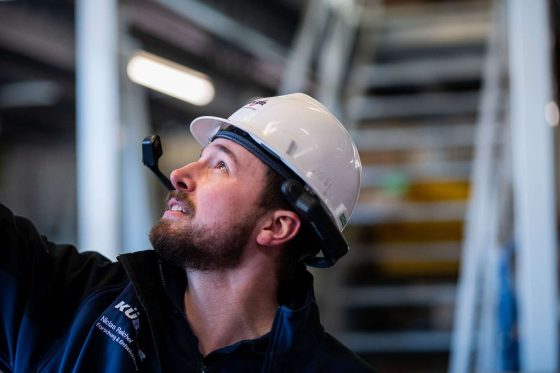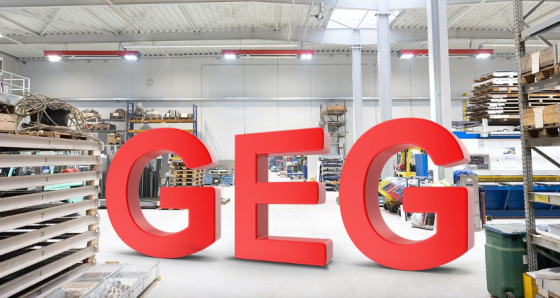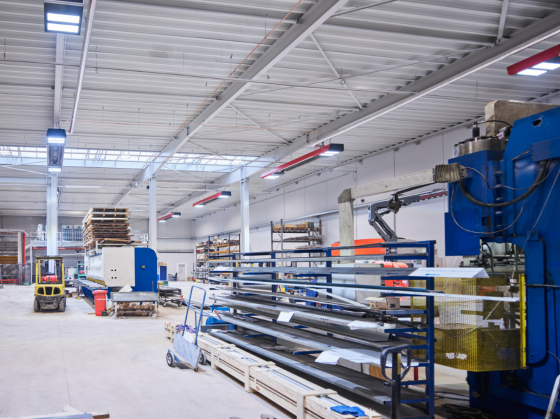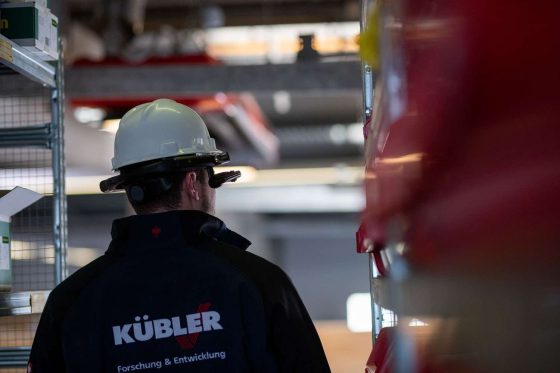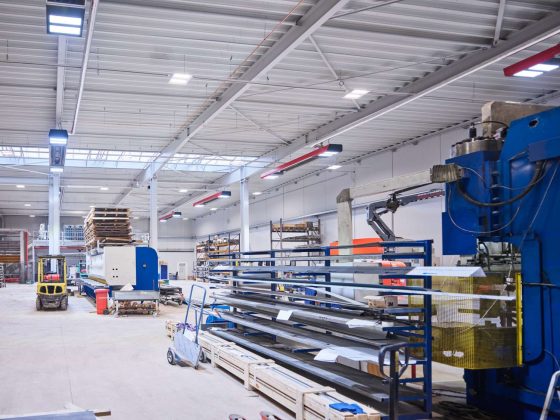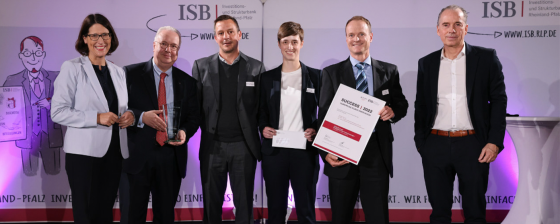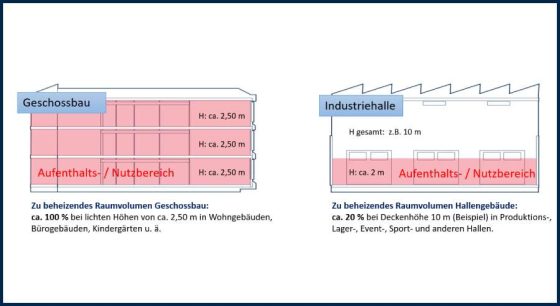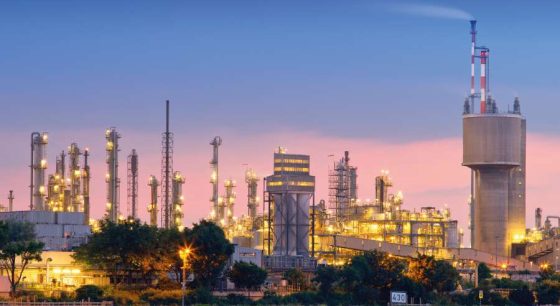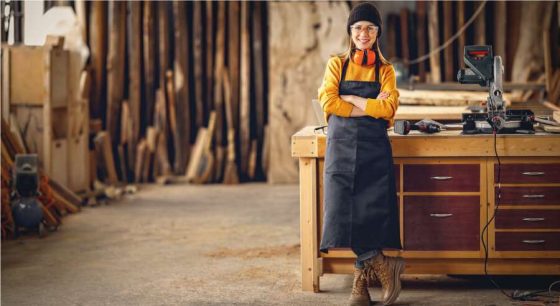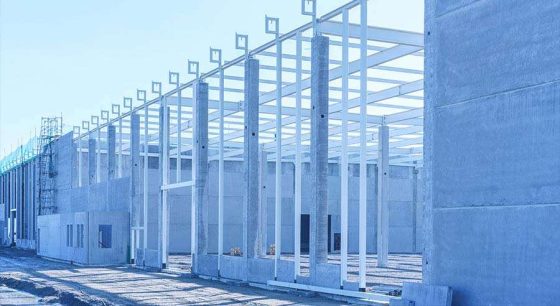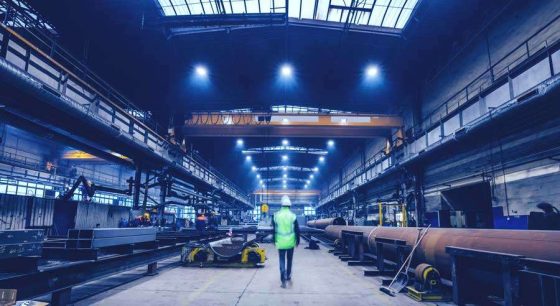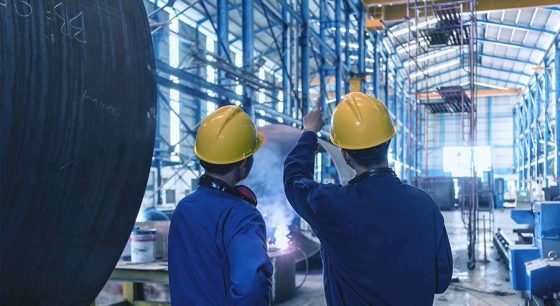KÜBLER hall heating
Blog
Stay up to date with our latest news and insights designed to meet the needs of modern industrial and commercial spaces. You'll not only find products, but also inspiration and ideas on how to take your business forward with improved heating technologies.
Let's discuss your project
Request a non-binding guide now
-
"No energy transition without energy efficiency" is the title of dena's "Topics and projects" section on its homepage "The best kilowatt hour is the one saved," says Thomas Kübler, Managing Partner of KÜBLER GmbH. Both mean the same thing: It's about curbing energy consumption in general and especially in companies. Because this is an enormous lever for achieving climate targets. And that's not all: energy efficiency also pays off economically if it is approached in the right technological way. Modern infrared heating technology plays an important role here, especially when it is intelligently combined with Bennwert technology.
-
The new CO₂ tax came into force in 2021. It is intended to help Germany achieve its climate protection targets. Read on to find out what this means for your company in terms of costs and what you should do now!
-
Turnverein 1860 Mußbach e.V. is a traditional sports club with a long history. Since it was founded in 1860, it has got a large number of people of all ages and backgrounds moving and now has over 1,200 members. The club offers a wide range of sporting activities. Dieter Hackebeil, former chairman of the club and now (un)retired, was the main person responsible for the renewal of the heating system at the time and can "only praise KÜBLER to the skies." Satisfaction and conviction are the key words here.
-
Nobody thinks about the hall heating when the sun is blazing, the asphalt is glowing and everyone is grateful for the slightest cooling. Or do they? Because anyone who looks ahead knows that summertime is maintenance time. So if you want to start the winter safely with your production halls or warehouses, it's good to be prepared. After all, the next heating period is often around the corner sooner than you think, which raises the question: is your hall heating system fit for the next season?
-
How will Germany heat from 2024 according to Federal Minister Habeck? First things first: the final answer is not yet available. This is because the draft for a new Building Energy Act (GEG) has only just made it through the cabinet. The next step will be to ask the Bundestag and Bundesrat. Nevertheless, the announced "end" for gas and oil heating systems has been making waves for months. And caused so much uncertainty that last winter, instead of investing in the energy-efficient refurbishment of their hall heating systems, industry often preferred to reactivate old oil and coal heating systems...
-
The metalworking company "Die Kanter & und Schlosser" heats its new building variably with electricity, hydrogen or gas thanks to the world innovation from KÜBLER in Ludwigshafen.
-
New gas heating quickly in 2023 - often the cheapest decision that also pays off for the environmentThe BMWK is currently causing a stir with a draft bill. This is because it involves a categorical ban on gas heating systems. According to the plan, from 2024, only heating systems powered by 65 % renewable energies may be used. Formally, this can only be heat pumps, district heating or biomass heating. This raises the question: what about the openness of technology in Germany? And who should pay for it? Decentralized gas-powered heating systems are often the only economically and functionally viable solutions, especially in hall buildings.
-
Back in July 2022, the BMWK published its concept paper on the amendment to the Building Energy Act (GEG), thereby not only causing hopeless uncertainty, but also preventing investment in necessary energy-efficient renovations. First things first: the amendment has not yet been passed - and it is questionable whether it will actually be passed 1:1. Because if you trust Struck's law, a law does not usually leave parliament in the form in which it was introduced.
-
The price of fossil fuels is rising. Also due to the increased CO₂ tax. It is becoming increasingly important for hall operators to generate heat in an energy-efficient manner. Find out how the right hall heating can help you to absorb rising costs.
-
It is only a small segment, but of great importance: in the current discussion about the energy transition, industrial buildings are being neglected. They only make up two percent of the building stock in Germany. However, they are responsible for around 15 percent of building-related energy consumption and the associated greenhouse gas (GHG) emissions. In the current Building Energy Act (GEG), however, industrial buildings are treated in the same way as daycare centers - and there are indications in a draft bill that the federal government wants to focus exclusively on heat pumps as a technology. KÜBLER GmbH in Ludwigshafen invited experts to discuss this issue. Daniel Föst, construction policy spokesman for the FDP parliamentary group in the Bundestag, announced his intention to change the legislative system.
-
While Germany is discussing the energy transition, KÜBLER GmbH from Ludwigshafen has already delivered. FUTURA is the name of the latest invention from the experts for hall heating systems - and it works regardless of the energy source: the infrared heating system for halls uses hydrogen, electricity, gas or a mix of these. It can process green and fossil fuels highly efficiently, thus building a bridge to the carbon-free era. This is one of the reasons why the Investitions- und Strukturbank Rheinland-Pfalz (ISB) and the Ministry of Economic Affairs, Transport, Agriculture and Viticulture awarded KÜBLER the special prize "Innovative Technologies for Climate Protection" at the SUCCESS Innovation Award on Tuesday evening.
-
How is energy used correctly? What does efficiency mean? In the German government's current energy policy, there is a huge gap between aspiration and reality. After all, industrial buildings are not treated as industrial buildings because they only account for two percent of buildings - even though they are responsible for 15 percent of greenhouse gas emissions. The latter has not played a role to date. Behind this two percent are 420,000 to 480,000 hall buildings that are used in industry, commerce and municipalities as production halls, logistics halls, workshops, sports halls or sales outlets. A small number that is responsible for a significant proportion of energy consumption and GHG emissions in Germany.
-
What is probably the most effective lever against the gas crisis, price pressure and dependence on Russia at the moment? The answer: consuming less energy. The German government is of this opinion and is calling for energy savings in a large-scale campaign - supported by industry and associations. This goal can be achieved. When it comes to the large halls of industrial and commercial enterprises, it is even easier and quicker than expected.
-
The horrendous rise in energy prices, the fear of Putin stopping supplies, the demand for renewable energies to combat climate change - all of this is currently causing a great deal of uncertainty. Is it still worth investing in gas-powered industrial heating systems? The answer to this question is important. Because it determines how quickly trade and industry will make their contribution to the energy transition. And how well it will be possible to meet the future requirement of climate protection in an economically viable way.
-
The "Innovative through research" seal is awarded to research-based companies that are committed to a strong innovation location in Germany with their development work. KÜBLER is once again one of these companies and has been awarded the prestigious seal.
-
The Federal Ministry for Economic Affairs and Climate Protection has been honoring the commitment of industry and research to climate and environmental protection for many years with the IKU - the German Innovation Award for Climate and the Environment. The 21 nominees include many big names as well as a medium-sized company: KÜBLER GmbH from Ludwigshafen. It specializes in the development of energy-saving hall heating systems and entered the competition with HeizWerk, a smart solution package for industry. Behind this is nothing less than a clever concept for energy-efficient refurbishment in production, storage and other hall buildings without the need for capital expenditure.
-
Whether in industry or in private residential construction - anyone deciding on a heating system or hall heating of the future today is faced with a lot of question marks. Which energy scenarios will actually determine the future? Which technologies will then become relevant? Is it still worth investing in fossil-fuel systems? What does the traffic light say? And taking all these questions into account, what is the best functional and economical heating solution for the hall building in the long term?
-
Whether in metalworking shops, joineries, welding shops, car dealerships or railroad companies - workshop heating systems ensure warm working conditions in the workshops when it gets cold outside. But what requirements - apart from heat generation, of course - can you place on a modern heating system today? And what do you need to pay attention to if you want your investment to continue to pay off in many years' time?
-
Are you looking for an economical and sustainable heating system for your new building? Then you should invest enough time in planning. And avoid the following mistakes.
-
Whether concert fans, art lovers or party enthusiasts: the room temperature also determines the success of events. How hosts ensure a comfortable climate in event halls and exhibition rooms with hall heaters.
-
Outdated hall heating systems lead to horrendous heating costs and pollute the environment. Despite this, many operators shy away from investing in modernization. One possible solution: rented hall heating systems - heat-as-a-service!
-
The German government's targets are ambitious: by 2045, Germany is to be climate-neutral and dispense with fossil fuels in the generation of heat. A target that is putting pressure on the industry. Numerous innovations are pushing for a switch to renewable energies - such as the Fuel Emissions Trading Act (BEHG), which sets an increasing CO₂ price for fossil fuels in the heat supply sector.
-
Room volume, employee requirements, climate protection targets, heating costs and, and, and: When choosing the right heating system for your halls, you need to consider a whole range of factors. Read this article to find out what these are in detail and how you can master these challenges with a modern system.
-
Operators of indoor heating systems are also responsible for having their system serviced regularly. In addition to operational safety, there are other good reasons why maintenance should not be put on the back burner!
